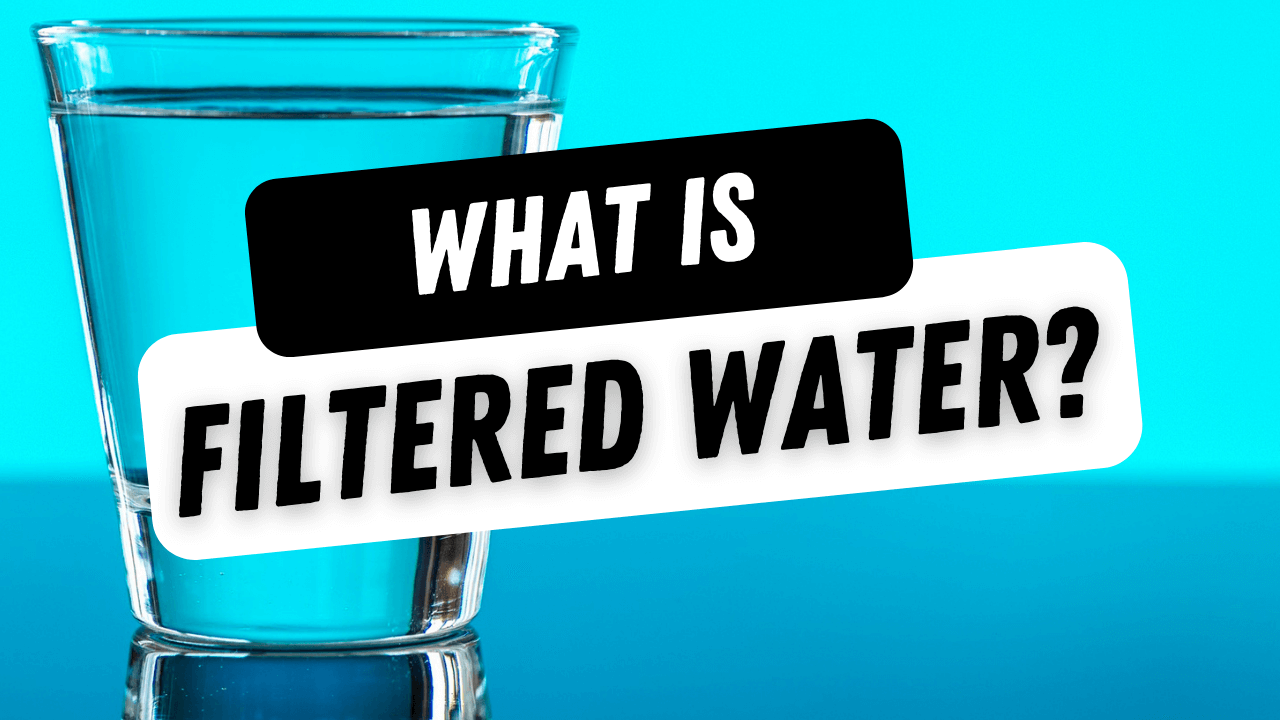What Is Filtered Water?
Filtered water is the go-to option for everyone who is passionate about creating a lifestyle of health and wellness.
Simply put, filtered water is that which is put through a cartridge or chemical process to remove chlorine and a range of other contaminants to improve the taste, but more importantly, the quality of the drinking water. While the majority of people are only concerned about the taste, we have a large client base who are also motivated by the health benefits.
There are several different types of filtration methods that depend on the end goal the user has in mind.
The most common type of purified water uses carbon to adsorb all of the contaminants, including chlorine, immediately improving the taste.

Is Bottled Water Filtered?
Bottled water can be many different things and also depends on the source from which it comes.
While some bottled water brands are purified or fresh from a spring, some bottled water brands are simply bottling average tap water.
While the assumption might commonly be that bottled water is purified, it simply isn’t what most people think it is.

How Do You Make Filtered Water?
To properly understand what filtered water is, it’s helpful to learn a little more about the process and how to make it. There are several types of methods used to produce filtered water:
1. Granulated Activated Carbon
GAC filters are used to remove chemicals that give off foul odours or tastes like chlorine, herbicides and pesticides. When the water flows through the granulated carbon, the chemicals stick to the carbon, producing better water.
A granulated carbon filter consists of small granular pieces of carbon and acts as a "polishing filter' in the filtration process.
2. Distillation
The distillation process vaporises water by heating it to exceptionally high temperatures before condensing it back into liquid form for drinking.
3. Deionization
Deionisation filters purify the water by removing salt and other charged particles. Living organisms like viruses or bacteria are not removed in this process.
4. Ion Exchange
Ion exchange water filters are effective at reducing the hardness of water with beads of a polymer resin. They perform well as water softeners or hard water filters. When hard water flows past the resin, the calcium and magnesium ions bind to the resin, displacing the sodium into the water, making it much softer and nicer to drink.
5. Reverse Osmosis
Reverse Osmosis works by pushing water through a semi-permeable membrane pulling out ions and other unwanted contaminants, including fluoride.
Reverse Osmosis removes more contaminants than any other filtration method.
Click here to learn all you need to know in the Buyers Guide to Reverse Osmosis.
6. Mechanical
Mechanical filtration separates solids from liquids using porous media or a screen that permits the liquid to pass through but traps solid materials.
7. Carbon Block
Carbon block filters are made up of powdered charcoal, which removes contaminants through a process called adsorption, where impurities stick to the carbon block as the water passes through the cartridge.
A charcoal filter will remove contaminants in relation to the micron size of the carbon powder inside.
8. Aragon
The Aragon creates the 2nd most purified form of filtered water available and combines numerous treatment methods: mechanical, ion exchange, adsorption, electric adsorption.
Discover more on the manufacturer's website.
DIY Filtration
We certainly wouldn't recommend it as a first choice, but there are a number of DIY filtering ideas too. Please note: these are not our ideas.
Best Methods
What’s the best filtration method? Read more for an in-depth description of each filtration method.
Now you know more about what filtered water is, it’s time for the most critical question:
Which Water Filter Is The Best?

With so many options, unfortunately, there is no single filtration method that does it all.
Carbon Filters are great for removing chemicals and chlorine, but won't get rid of fluoride.

UV Light Filters will kill off all the bad bugs, but don't remove heavy metals.
A Reverse Osmosis system effectively removes fluoride and other contaminants, but it also removes chlorine, leaves the water slightly acidic, and strips it of essential minerals. Remineralisation helps restore these vital minerals for better taste and health benefits. If you choose to invest in a home water filter, we're here to assist you in any way we can.

It all comes down to what challenge you’re trying to solve by having a water filter.
All water sources, mains water, bore water, and rainwater, have a variety of chemicals, bacteria, and acidity. Most of these unwanted contaminants can affect your health and can even cause damage to the home.
We created a resource called Which is the best water filter for me; feel free to check it out and contact us if you have any questions.








